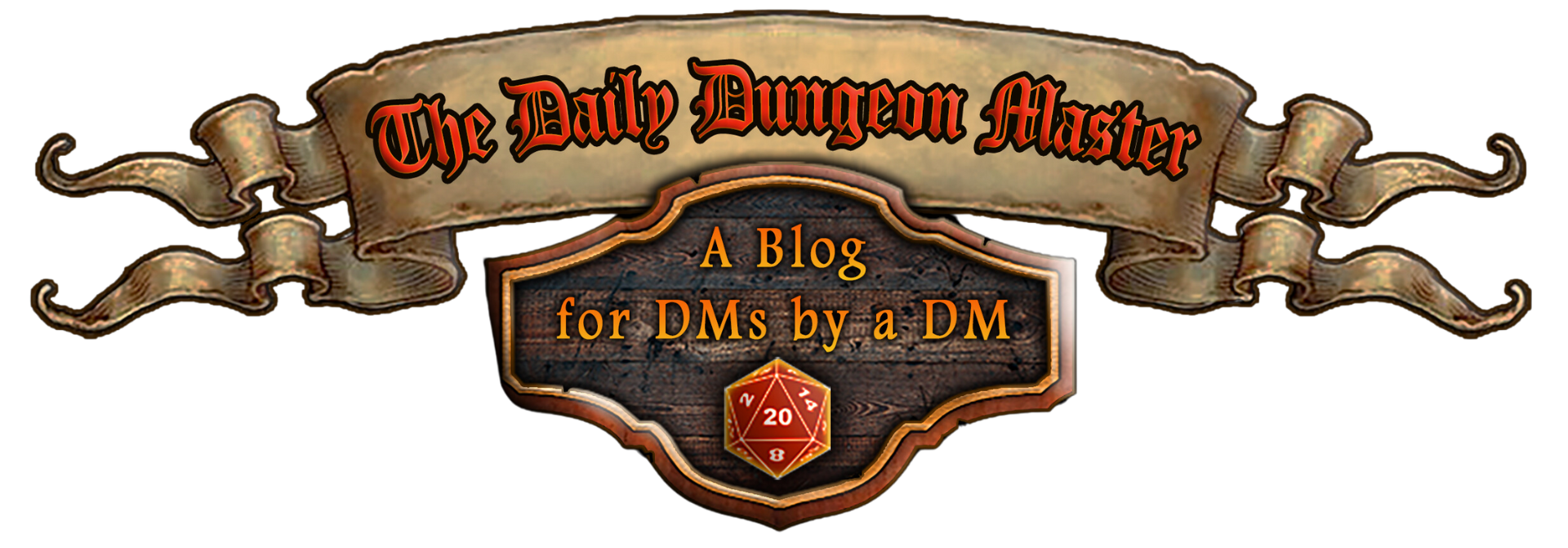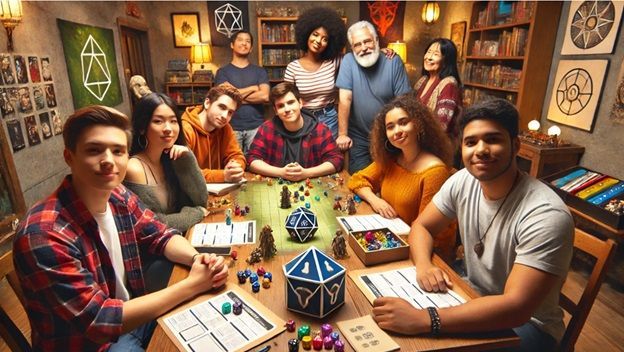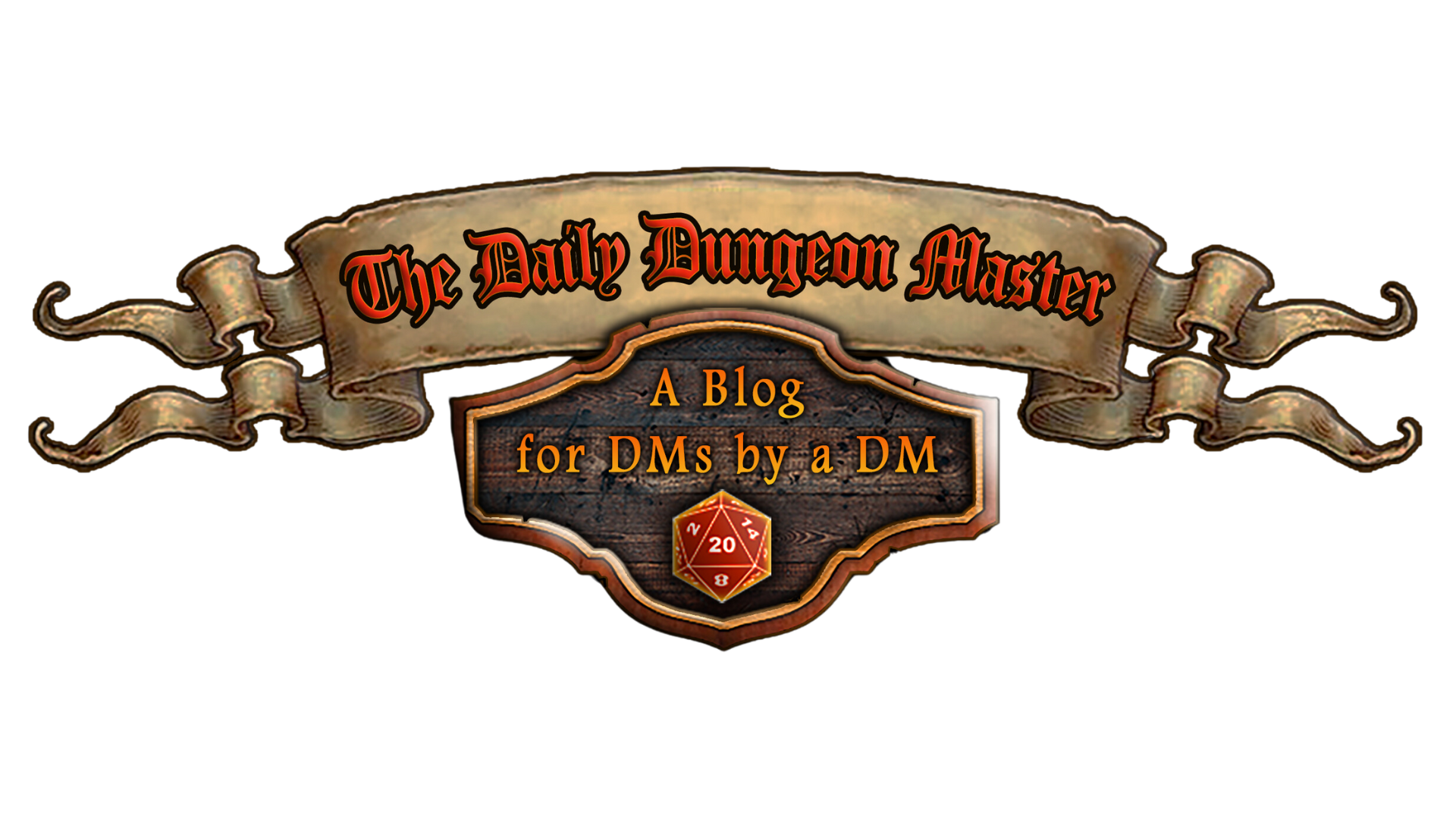Rolling Dice in the Digital Realm: Your Guide to Running and Playing TTRPGs Online
So you want to play online...

Dear Readers,
The world of tabletop role-playing games (TTRPGs), and especially Dungeons & Dragons (D&D), has witnessed a significant transformation in the digital age. Playing and running games online, once a niche skillset, has become a central part of how adventurers worldwide gather for storytelling, dice-rolling, and world-building. Whether you’re a Dungeon Master (DM) or a player, moving your game to the virtual tabletop presents unique challenges and opportunities.
In this blog post, we’ll delve into the essentials of running and playing D&D games online. We’ll cover the platforms available, tips for creating an immersive experience, best practices for managing an online group, and how to keep the magic alive despite the digital barrier. Let’s dive in!
The Shift to Online Play
The COVID-19 pandemic accelerated the shift to online TTRPGs, but the trend was already gaining traction. With players spread across cities, countries, or even continents, online tools became a necessity for keeping campaigns alive. However, the transition isn’t just about swapping your physical table for a virtual one—it’s about embracing new methods of collaboration, technology, and creativity.
Why Play Online?
- Accessibility: Online play lets you connect with players anywhere in the world. Time zones might be tricky, but geography is no longer a limitation.
- Convenience: No travel, no cleanup, and no hunting for the missing d20 under the couch cushions.
- Tools and Features: Online platforms offer resources like virtual dice, automated character sheets, dynamic maps, and even sound effects to enhance gameplay.
Platforms for Online D&D
A variety of tools and platforms exist for running games online, each catering to different needs and levels of tech-savviness. Here’s a breakdown of some of the most popular ones:
1. Roll20
Roll20 is one of the most widely used platforms for online TTRPGs. It offers a virtual tabletop, integrated character sheets, and customizable maps.
- Pros: Free tier available, extensive community-created content, supports multiple systems.
- Cons: Can be overwhelming for new users, requires some setup time.
2. Foundry VTT
Foundry is a premium virtual tabletop with robust features for immersive play, including dynamic lighting and advanced automation.
- Pros: High customization, excellent visuals, one-time purchase fee.
- Cons: Requires hosting, a steeper learning curve.
3. Discord
Though not a virtual tabletop, Discord has become a hub for voice, video, and text-based role-playing games. Bots like Avrae can automate D&D mechanics.
- Pros: Free, easy to use, adaptable to different play styles.
- Cons: Limited visual tools compared to dedicated platforms.
4. Fantasy Grounds
Fantasy Grounds is a professional-grade virtual tabletop with licensed D&D content and integrated rulebooks.
- Pros: Preloaded adventures and automation, extensive official content.
- Cons: Expensive, less user-friendly for beginners.
5. Other Platforms
- D&D Beyond: Great for managing character sheets and sharing resources.
- Zoom/Google Meet: Ideal for voice and video but requires additional tools for maps and dice rolls.
Tips for Dungeon Masters: Running Games Online
Being a DM online comes with its own set of challenges. Here are some tips to make your virtual sessions seamless and engaging.
1. Prepare for Technical Glitches
Technical issues are inevitable. Internet disruptions, platform bugs, or hardware malfunctions can interrupt the flow of your game.
- Solution: Have a backup plan! Keep character sheets and notes saved offline. If a platform fails, be ready to switch to a simpler tool like Discord or a shared Google Doc.
2. Keep It Simple
Overloading your session with too many tools or complex maps can slow things down. Focus on what’s essential for the story and gameplay.
- Pro Tip: Use theater-of-the-mind for encounters that don’t require detailed visuals. Save the high-effort maps for pivotal moments.
3. Engage the Players
Without the physical cues of in-person play, it’s easy for players to get distracted.
- Suggestions:
- Use cliffhangers to keep them invested.
- Rotate focus between characters to ensure everyone gets a chance to shine.
- Incorporate visuals, like character art or props, to recapture attention.
4. Leverage Online Tools
Automation can save time and reduce the burden on the DM.
- Use platforms like D&D Beyond for instant access to rules and character sheets.
- Integrate soundscapes with tools like Syrinscape to enhance immersion.
- Employ initiative trackers and virtual dice rollers to streamline combat.
Best Practices for Players
Playing D&D online requires some adjustments compared to in-person games. Here’s how players can make the most of their virtual adventures.
1. Communicate Clearly
Online sessions can create delays or miscommunication due to technical issues.
- Use your platform’s text chat for clarifications during combat or roleplay without interrupting the flow.
- Use “push-to-talk” in voice chat to avoid accidental interruptions.
2. Be Prepared
Have your character sheet, dice, and notes ready before the session begins. This avoids delays and keeps the game moving.
- Pro Tip: Keep an eye on the group calendar and confirm availability early to minimize scheduling conflicts.
3. Stay Engaged
It’s easy to zone out during someone else’s turn, but staying attentive is vital for group cohesion.
- React to other players’ actions, even if it’s just through text emojis or sound effects.
- Offer encouragement or collaborate on plans for group activities.
Creating an Immersive Online Experience
Immersion is often the first casualty of online play, but it doesn’t have to be. By taking advantage of available tools and fostering a collaborative atmosphere, you can maintain the magic of in-person sessions.
1. Use Dynamic Visuals
- Maps and Tokens: Platforms like Roll20 and Foundry VTT allow you to upload custom maps and tokens.
- Virtual Props: Share handouts or images via Google Drive or screen share.
2. Play with Sound
- Incorporate background music and ambient sounds to set the tone.
- Use soundboards for specific effects like dragon roars, door creaks, or battle cries.
3. Focus on Roleplay
Online settings can enhance roleplay if approached creatively.
- Experiment with character accents using voice modulation software.
- Encourage players to write “in-character” chat messages during downtime.
Managing Group Dynamics Online
Group cohesion is critical in any D&D game, but it’s especially important online, where it’s easier for players to disconnect or become disengaged.
1. Establish Ground Rules
Agree on expectations for behavior, participation, and scheduling.
- Define how absences will be handled.
- Clarify acceptable in-game and out-of-game conduct.
2. Promote Inclusivity
A safe, welcoming environment encourages creativity and fun.
- Use tools like X-Cards for handling sensitive topics.
- Regularly check in with players to ensure everyone is comfortable.
3. Foster Team Spirit
Icebreaker activities or shared character backstories can help new groups bond.
Overcoming Challenges of Online Play
1. Combat Pacing
Online combat can be slower due to delays in rolling dice or managing maps.
- Solution: Use automated initiative trackers and pre-roll enemy attacks or saving throws.
2. Player Distraction
Distractions like phones, pets, or other tabs are common in online games.
- Solution: Make sessions engaging by increasing the stakes or using visual aids.
3. Scheduling Conflicts
Finding a time that works for everyone can be tricky, especially across time zones.
- Solution: Use scheduling tools like Doodle or Google Calendar to coordinate sessions.
The Future of Online D&D
The popularity of online D&D isn’t fading anytime soon. Emerging technologies like augmented reality (AR) and virtual reality (VR) could redefine how we experience tabletop games, offering fully immersive environments. AI-powered DMs and automated storytelling assistants are also on the horizon, promising to enhance gameplay further.
Final Thoughts
Running and playing D&D online requires some adaptation, but the benefits far outweigh the challenges. The tools available today enable players to craft imaginative, immersive worlds, no matter the distance. As long as you prioritize communication, preparation, and engagement, the magic of D&D will continue to thrive in the digital realm.
Until next time, Dear Readers...
All Rights Reserved | The Daily Dungeon Master











